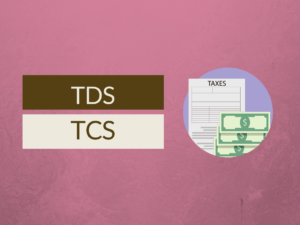Engaging 50 word intro
Welcome to this comprehensive guide on understanding the differences between TDS and TCS! In this article, we will explore the definitions, examples, uses, and key distinctions between these two important concepts. Whether you’re a business owner, a taxation professional, or simply curious about tax-related terms, this article will provide you with valuable insights. So, let’s dive in!
What is TDS?
TDS stands for Tax Deducted at Source. It is a means of collecting income tax from individuals or organizations on their income, dividends, or payments. In this process, the person making the payment (deductor) deducts a certain percentage of the amount payable and remits it to the government on behalf of the recipient (deductee).
Examples of TDS
Let’s understand this concept with a couple of examples:
- A company paying salaries to its employees deducts a specific percentage from each employee’s salary before issuing the payment.
- A person receiving interest income from a fixed deposit may have tax deducted by the bank before receiving the interest payment.
Uses of TDS
The primary uses of TDS are:
- To ensure a steady flow of revenue for the government throughout the financial year.
- To reduce the burden of tax payment by collecting it in smaller installments.
- To discourage tax evasion by making individuals and organizations accountable for their deductions.
What is TCS?
TCS stands for Tax Collected at Source. It is a method of collecting tax by sellers at the time of sale of specified goods. While TDS involves deducting tax on payments made, TCS involves collecting tax on goods sold. The seller, acting as the collector, collects the tax from the buyer and forwards it to the government.
Examples of TCS
Here are a couple of examples illustrating TCS:
- An individual purchasing high-value luxury items may notice an additional amount being collected by the seller as TCS for a certain percentage of that item’s value.
- Aart Shop, a popular online retailer, adds a separate tax amount to the total payment when customers purchase selected electronic products, and later contributes that amount to the government.
Uses of TCS
TCS serves several vital purposes:
- To ensure tax compliance by collecting tax revenue at the point of sale.
- To track high-value transactions and discourage tax evasion.
- To widen the tax base by covering transactions that may otherwise remain unnoticed.
Differences Table: TDS vs. TCS
| Difference Area | TDS | TCS |
| Tax Collection Mechanism | Collects tax on income, dividends, or payments made | Collects tax on sale of specified goods |
| Payments Involved | Deductions made on payments issued | Collection made during sale transactions |
| Primary Role | Ensuring tax deduction at the source for future tax liabilities | Collecting tax immediately during the sale |
| Transaction Type | Relates to a broader range of income streams | Specific to the sale of goods |
| Burden | Places the burden on the deductor to deduct tax from the payment | Imposes the responsibility on the collector to collect tax |
| Applicability | Applicable to both individuals and organizations | Primarily applicable to sellers or businesses |
| Purpose | Facilitates efficient tax collection and ensures revenue stability | Monitors and tracks high-value transactions, discouraging tax evasion |
| Enforced By | Enforced by the Income Tax Department | Enforced by the Central Board of Indirect Taxes and Customs (CBIC) |
| Reporting | Tax deducted needs to be reported in TDS returns filed by the deductor | Tax collected must be reported in TCS returns filed by the collector |
| Provision | Regulated by the Income Tax Act, 1961 | Regulated by the Central Goods and Services Tax Act, 2017 |
Conclusion
In summary, TDS and TCS are both crucial tools in tax administration. While TDS focuses on collecting tax at the source on income, dividends, or payments, TCS is centered around collecting tax at the point of sale for specified goods. Understanding the differences between these concepts ensures proper compliance and helps individuals and businesses navigate their tax obligations.
People Also Ask
Here are a few common questions that readers often have about TDS and TCS:
1. What is the difference between TDS and TCS?
TDS involves deducting tax on income, dividends, or payments, while TCS involves collecting tax on the sale of specified goods.
2. Who deducts TDS?
The person making the payment (deductor) deducts TDS and remits it to the government on behalf of the recipient (deductee).
3. Who is liable to collect TCS?
Sellers or businesses are liable to collect TCS from buyers at the time of sale.
4. What is the purpose of TDS?
TDS ensures a steady flow of revenue for the government, reduces the burden of tax payment, and discourages tax evasion.
5. What is the reporting requirement for TDS and TCS?
TDS needs to be reported in TDS returns filed by the deductor, and TCS must be reported in TCS returns filed by the collector.
Hopefully, this article has provided you with a clear understanding of TDS and TCS, their differences, and their significance in the tax landscape. Remember to consult tax professionals or refer to the relevant tax laws for detailed information and compliance.



